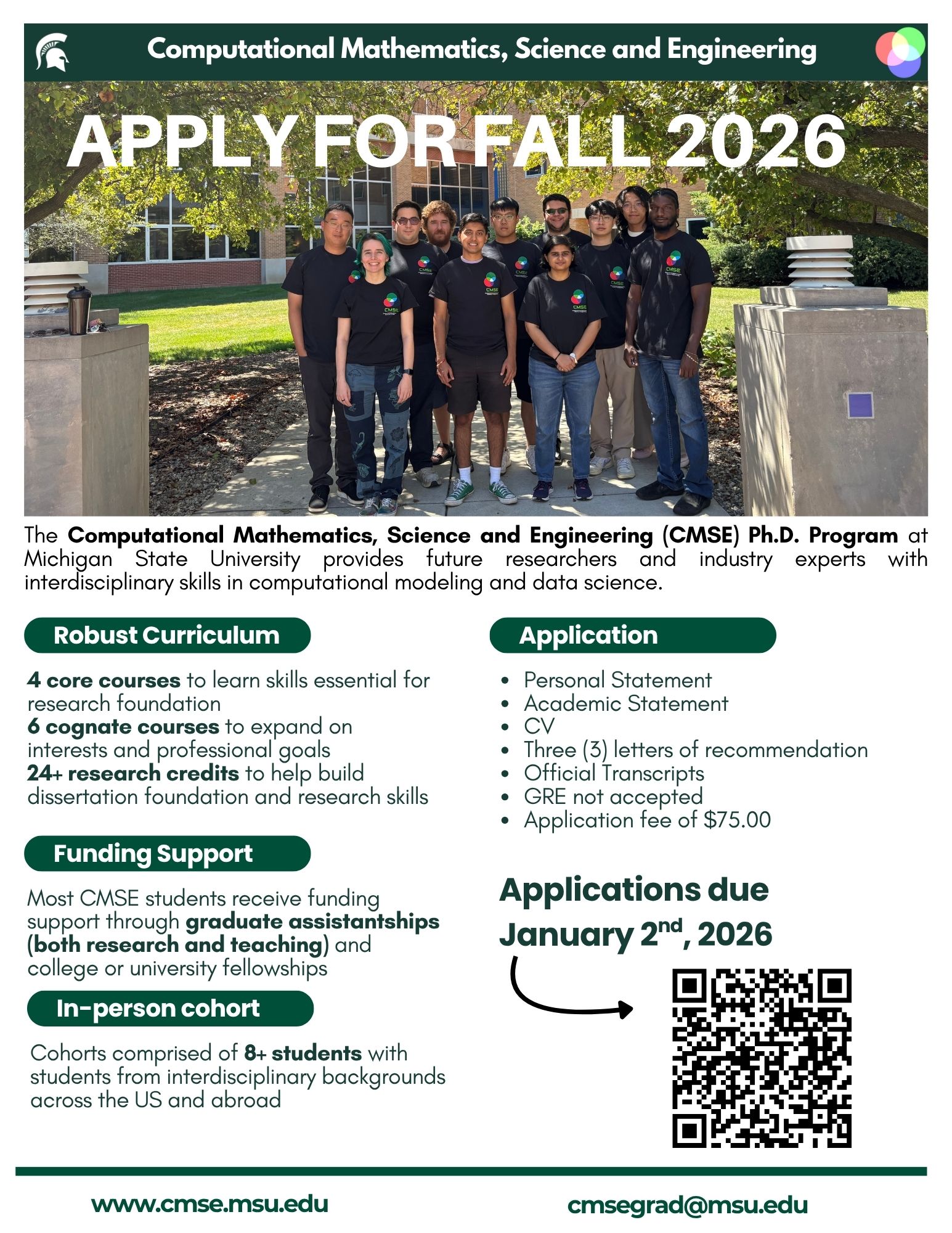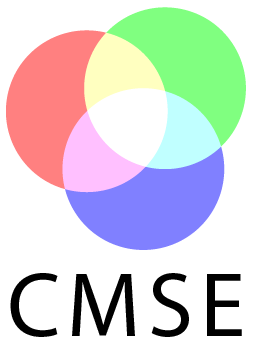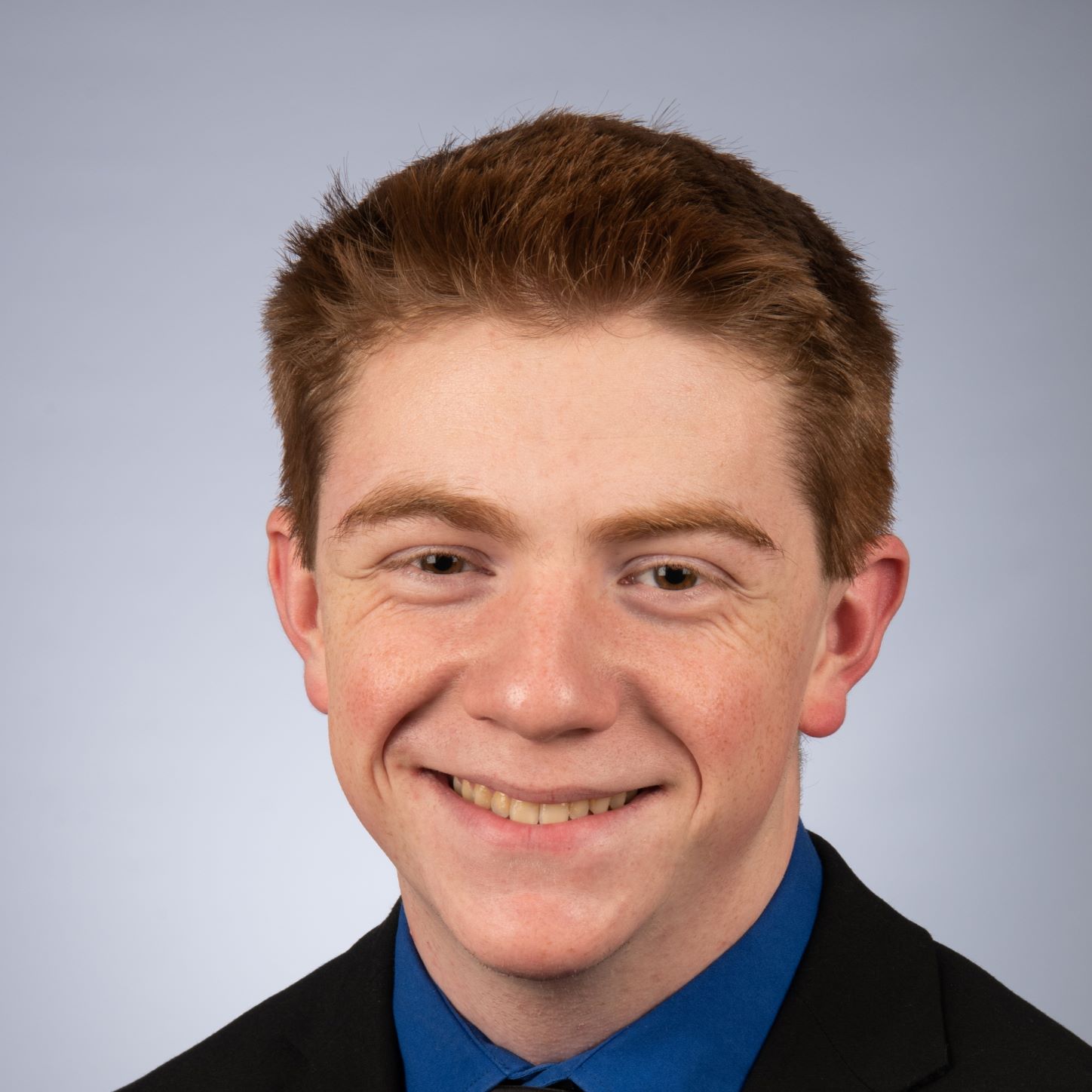Dissertation Defense of CMSE Danielle Barnes
Department of Computational Mathematics, Science & Engineering
Michigan State University
Dissertation Defense Notice
Danielle Barnes
April 4, 2024, 11:00am
428 S. Shaw Lane, Room 1502
East Lansing, MI 48824
https://msu.zoom.us/j/98193422573
Meeting ID: 981 9342 2573
Passcode: barnes
Topological Data Analysis Drive Feature Generation in Machine Learning Models
Abstract:
Topological data analysis (TDA) is an emerging field in data science, with origins in algebraic topology. I focus on two main disciplines of topological data analysis, mapper and persistent homology. Mapper is an algorithm to construct a graph that is similar to a Reeb graph, allowing for the abstraction of shape from data. Persistent homology is way to measure features in a dataset, and returns a set of points (a persistence diagram) that represents the structure of the dataset. While both mapper and persistent homology are effective tools in their own right, a significant area of research includes using features created from these topological tools in machine learning algorithms. In this dissertation, I focus on advancing both theoretical and computational methods that allow the use of topological data analysis in machine learning algorithms. I have developed an extension to the mapper algorithm, named predictive mapper, that uses the eigenvectors of the graph Laplacian of the geometric realization of a mapper graph as a basis, allowing features to be created from mapper for use in machine learning. I have also contributed to teaspoon, an open source package for topological signal processing by including new datasets and expanded functionality for featurization methods. Lastly, I have started the development of ceREEBerus, a python package for working with Reeb graphs while implementing a standardized software development framework for the Munch Lab.
Committee Members:
Dr. Elizabeth Munch (Chair)
Dr. Jose Perea
Dr. H. Metin Atkulga
Dr. Brian O’Shea



